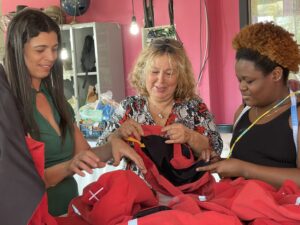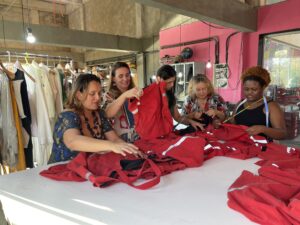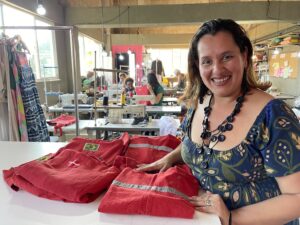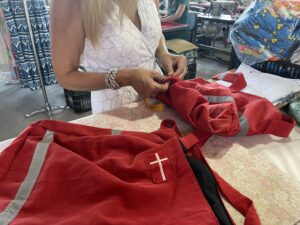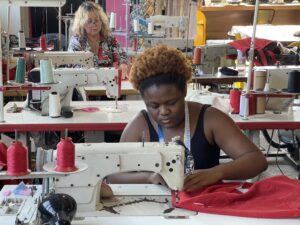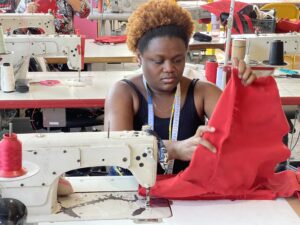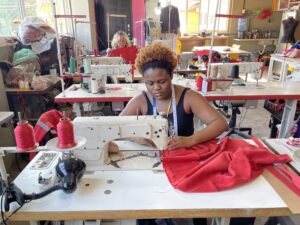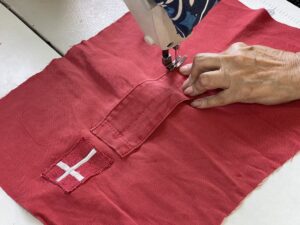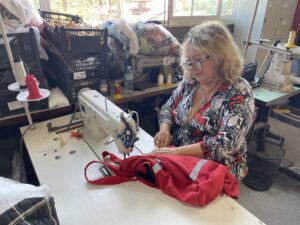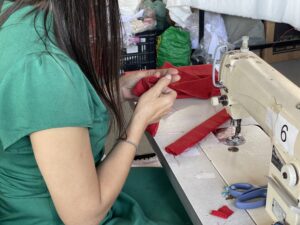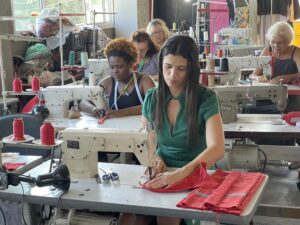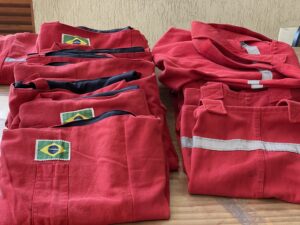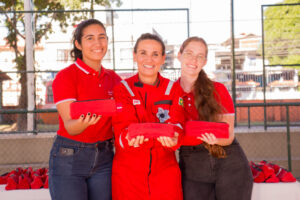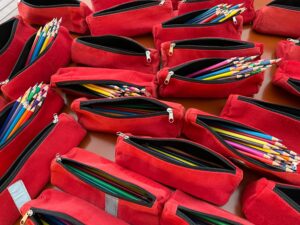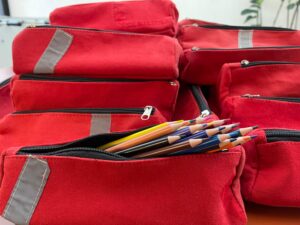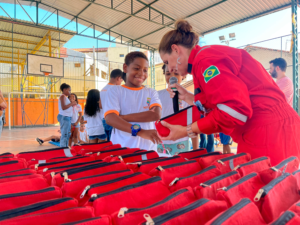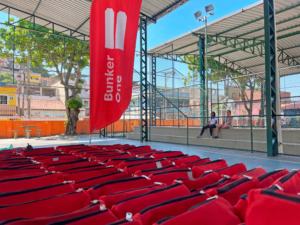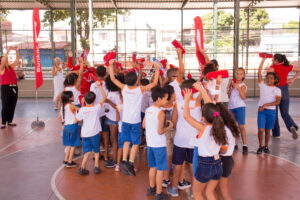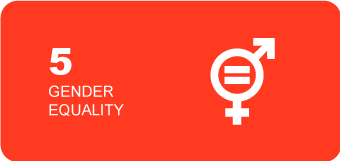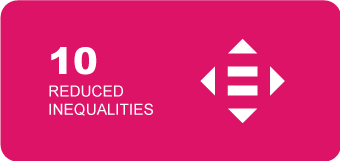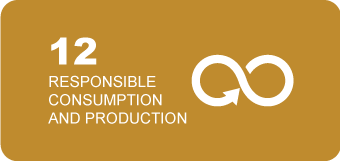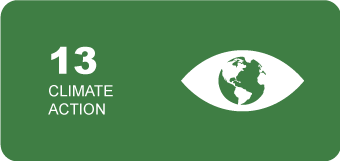
WHAT HAPPENS WITH THE UNIFORMS WORN DURING MARITIME OPERATIONS?
When it comes to the proper disposal of waste materials, the volume generated by clothes and fabric is usually overlooked. Brazil produces 170K tons of textile residues each year. Only 20% of those are recycled.
Bunker One Brazil is concerned about leaving a positive environmental impact and implements measures to increasingly reduce its ecological footprint. Since May 2023, all boiler suits used in our operations in Brazil have been sanitized and transformed into new products, just like the eco-bags you see on this website.
This creative transformation of waste materials is known as upcycling. Through this technique, we add greater value and quality to a product that has been used before. Unlike recycling, upcycling doesn't require any type of industrial process - making it even more sustainable.
How does it work?
In the end, an former boiler suit is put to good use, and we build together a more sustainable future. The upcycling process is completed, but not finalized – our project goes back to the initial stage each time new uniforms are ready to be transformed.
CONNECTED WITH THE SUSTAINABLE DEVELOPMENT GOALS IN BRAZIL

Bunker One is the largest independent bunker supplier in Brazil. We are a subsidiary of the Danish group Bunker Holding, the global leader in the supply of marine fuels, with around 15% of the market share worldwide. Sustainability is at the core of our business: Bunker One Brazil has neutralized its CO2 emissions (scopes 1 and 2) - and continuously implements initiatives that dialogue with a more sustainable planet. We coordinate marine fuel supplies in all Brazilian Ports from our office in Rio de Janeiro, with our main operational terminal located in the city of Niteroi, where Upcycling Bunker One is based.

CHARLOTTE BRECHÓ
Specialized in textile upcycling, Charlotte Brechó is an institution that connects companies and social projects through the reuse of waste fabric. Throughout its 7 years of existence, the thrift store has already handled more than 7 tons of textile waste and involved around 16,000 people in socio-environmental activities. Its founder, the businesswoman Vanessa Fraga, is a member of the Fashion Law Commission from the Bar Association of Niteroi. Charlotte Brechó is also certified by the Niterói Climate Secretariat for good carbon neutralization practices.

MULHERES DO SUL GLOBAL
The NGO Mulheres do Sul Global encourages the economic empowerment of refugees, migrants, and other socially vulnerable women through sewing. As a socio-environmental business, the organization is a factory-school: in addition to the participants finding income by producing garments through upcycling, training is offered so that these women can develop and improve their techniques in the textile production line. Since its foundation in 2017, more than 200 women of at least 9 nationalities have passed through the NGO, including Colombians, Peruvians, Venezuelans, Angolans, Congolese, and others.
